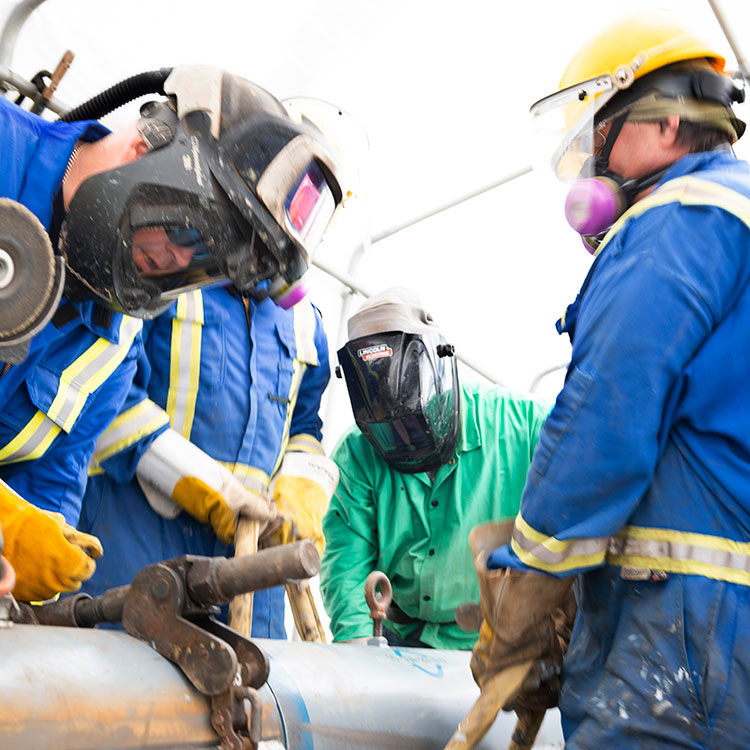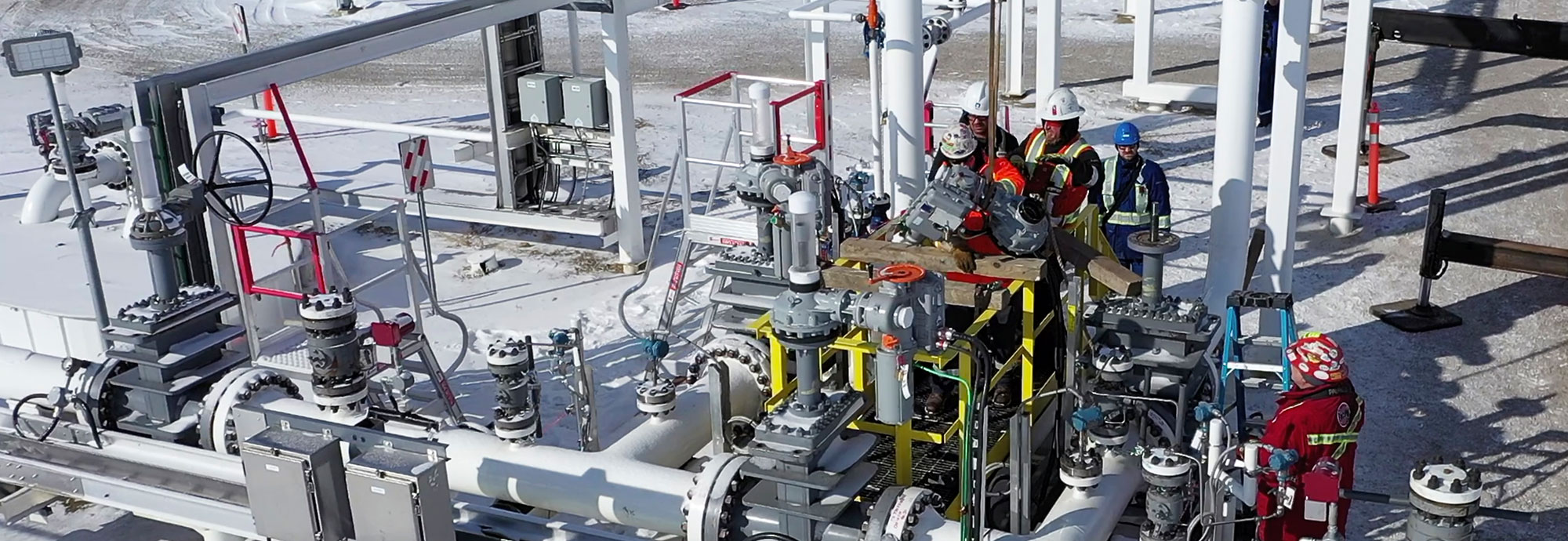Trans-Northern Pipelines Inc. (TNPI) is committed to operating in a safe and environmentally responsible manner to protect the public, the environment, and the pipeline.
According to Natural Resources Canada, pipelines are recognized as the safest method of transporting large quantities of liquid hydrocarbons (oil, gas) over long distances.

At TNPI, we believe getting our people home safely is the most important thing we do. No job is so important, no task so urgent, that it cannot be completed safely, the right way, every day. We make safety a way of life. We Make it Home!!
TNPI supports day-to-day activities, drives operational excellence, and builds its safety culture through continuous health and safety improvement initiatives. At TNPI, we adhere to and abide by the Life Saving Rules.
Following are some of the ways we ensure the safety of our underground pipelines every day:
- Trained Line Controllers operate and monitor our pipelines 24 hours a day, seven days a week using state-of-the-art SCADA computer equipment. We remotely monitor the entire system, watching for irregularities that may suggest a leak or other disturbance. We also regularly use specialized internal inspection tools that run through the pipeline to identify areas for further investigation.
- We conduct aerial surveillance and ground patrols along the pipelines to identify potential hazards such as unauthorized excavation or digging, construction, inadequate soil coverage, signs of possible leaks, vandalism, suspicious behaviour or other disturbances.
- Yellow marker signs (Ontario and Quebec) or white marker signs (Alberta) appear along our pipeline to advise the public that they are near a pipeline and to provide contact details for more information.
In the unlikely event that we experience an emergency situation, we also have protocols and plans in place to ensure we can respond quickly. Please navigate to our Emergency Management page for more information on our emergency response protocols, plans, and training.
Related Content
Living and Working Near Pipelines
TNPI collaborates with residents and businesses to promote awareness of safety measures and regulations, fostering a secure environment for everyone.
Emergency Management
TNPI maintains a comprehensive Emergency Management Program so we are prepared to respond to and recover from an emergency situation.
Identifying a Leak
Pipelines are generally safe, but it’s important to recognize the signs of a leak. If you suspect one, move to safety, call 9-1-1, and then our Emergency Services hotline at 1-800-361-0608.
FAQ
Explore our FAQ section for answers to common questions about TNPI’s operations, safety protocols, and maintenance practices.
Pipeline Security
TNPI has developed a Security Management Program that aligns with CSA Z246.1 Security Standard for the protection of people, the environment, assets, and economic stability. The security Management Program provides mitigation and response processes and procedures to prevent and minimize the impact of security incidents that could adversely affect the people, the environment, the assets, and the economic stability in the communities where we operate.
If you see something, say something
- If something seems wrong, notify law enforcement as soon as possible. If you have any doubts or would like to report a suspicious incident, please contact your local police service or call the RCMP National Security Information Network at 1-800-420-5805.
- Describe specifically what you observed, including: who or what you saw; when you saw it; where it occurred; and why it is suspicious.
- If there is an emergency, call 9-1-1.
- Notify TNPI at 1-800-361-0608.
Note that all TNPI employees have photo ID, and you may ask to see that ID when interacting with members of our team.

